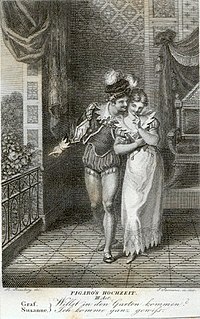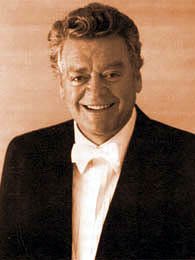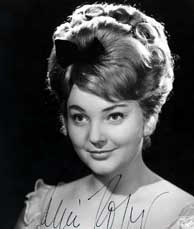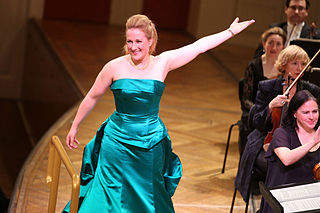
The Marriage of Figaro, K. 492, is an opera buffa in four acts composed in 1786 by Wolfgang Amadeus Mozart, with an Italian libretto written by Lorenzo Da Ponte. It premiered at the Burgtheater in Vienna on 1 May 1786. The opera's libretto is based on the 1784 stage comedy by Pierre Beaumarchais, La folle journée, ou le Mariage de Figaro. It tells how the servants Figaro and Susanna succeed in getting married, foiling the efforts of their philandering employer Count Almaviva to seduce Susanna and teaching him a lesson in fidelity.

The Barber of Seville, or The Useless Precaution is an opera buffa in two acts by Gioachino Rossini with an Italian libretto by Cesare Sterbini. The libretto was based on Pierre Beaumarchais's French comedy Le Barbier de Séville (1775). The première of Rossini's opera took place on 20 February 1816 at the Teatro Argentina, Rome, with designs by Angelo Toselli.
Grigori Rasputin (1869–1916) was a Siberian peasant and mystic, who became a healer and adviser for the Romanovs at the end of the Russian Empire.

Tito Gobbi was an Italian operatic baritone with an international reputation.

Hermann Prey was a German lyric baritone, who was equally at home in the Lied, operatic and concert repertoires. His American debut was in November 1952, with the Philadelphia Orchestra and Eugene Ormandy, and his American recital debut took place in 1956, at New York's Carnegie Hall. As a Lieder singer, he was a gifted interpreter of Schubert, including his song-cycles Die schöne Müllerin and Die Winterreise and the collection of songs Schwanengesang, as well as of Robert Schumann, Richard Strauss and Gustav Mahler. He also appeared frequently as a soloist in Bach's Passions and Brahms' A German Requiem.

The Marriage of Figaro is a comedy in five acts, written in 1778 by Pierre Beaumarchais. This play is the second in the Figaro trilogy, preceded by The Barber of Seville and followed by The Guilty Mother.
Sir Thomas Boaz Allen is an English operatic baritone. He is widely admired in the opera world for his voice, the versatility of his repertoire, and his acting—leading many to regard him as one of the best lyric baritones of the late 20th century. In October 2011, he was appointed Chancellor of Durham University, succeeding Bill Bryson.

Lucia Popp was a Slovak operatic soprano. She began her career as a soubrette, and later moved into the light-lyric and lyric coloratura soprano repertoire and then the lighter Richard Strauss and Wagner operas. Her career included performances at Vienna State Opera, the Metropolitan Opera, Covent Garden, and La Scala. Popp was also a highly regarded recitalist and lieder singer.
"Largo al factotum" is an aria from The Barber of Seville by Gioachino Rossini, sung at the first entrance of the title character, Figaro. The repeated "Figaro"s before the final patter section are an icon in popular culture of operatic singing. The term "factotum" refers to a general servant and comes from Latin where it literally means "do everything".

Diana Damrau is a German soprano who achieved international fame for her performances, primarily in opera, but also in concert and lieder. She has been successful in coloratura soprano roles since her early career, and gradually proceeded into heavier roles 19th-century Italian bel canto repertoire. Her signature roles include the Queen of the Night in The Magic Flute, Zerbinetta in Ariadne auf Naxos, Lucia in Lucia di Lammermoor, and Violetta in La traviata.
"Marriage of Figaro" is the third episode of the first season of the American television drama series Mad Men. It was written by Tom Palmer and directed by Ed Bianchi. The episode originally aired on the AMC channel in the United States on August 2, 2007.

New Zealand Opera is New Zealand's only full-time professional opera company, formed in 2000 from the merger of companies in Auckland and Wellington. New Zealand Opera is headquartered in Parnell, Auckland, stages several productions a year, runs educational programmes, and supports early-career opera singers with the Dame Malvina Major Foundation.
Marriage is a socially or ritually recognized union, or legal contract between spouses.
This is a partial discography of complete performances of Wolfgang Amadeus Mozart's opera The Marriage of Figaro. This opera was first performed at the Burgtheater in Vienna on 1 May 1786.

Lisa Della Casa was a Swiss soprano most admired for her interpretations of major heroines in operas by Wolfgang Amadeus Mozart and Richard Strauss, and of German lieder. She was also described as “the most beautiful woman on the operatic stage”.
Alexa Alemanni is an American actress. She appeared as Allison, secretary to Don Draper on the AMC original series Mad Men (2007–2010).

The Marriage of Figaro is a 1949 East German musical film directed by Georg Wildhagen and starring Angelika Hauff, Willi Domgraf-Fassbaender and Sabine Peters. It was based on the opera The Marriage of Figaro by Wolfgang Amadeus Mozart and Lorenzo Da Ponte, which was itself based on the play The Marriage of Figaro by Pierre Beaumarchais. The film was made by DEFA, the state production company of East Germany, in their Babelsberg Studio and the nearby Babelsberg Park. It sold 5,479,427 tickets.
Terra Film was a Berlin-based film production company. Founded in 1919, it became one of Germany's largest film production companies in the 1930s under the Nazi regime.
The Marriage of Figaro is a 1960 Australian TV film. It was a filmed version of Mozart's 1786 opera, sung in English.









